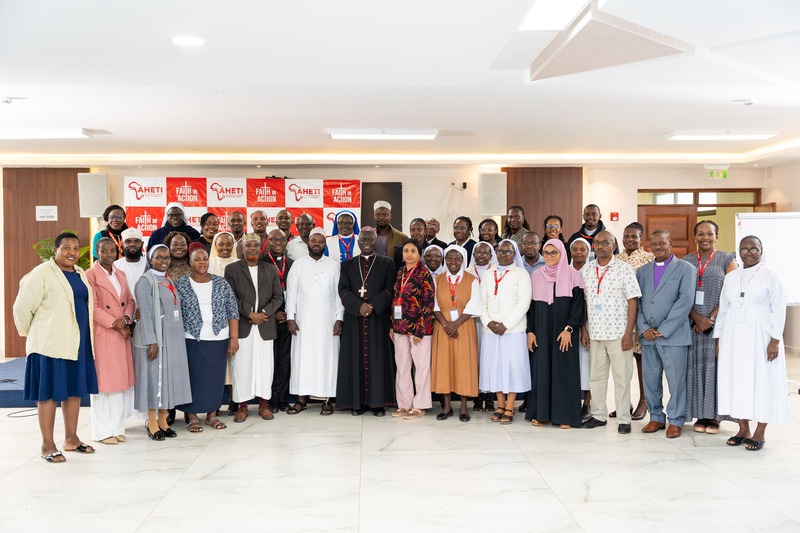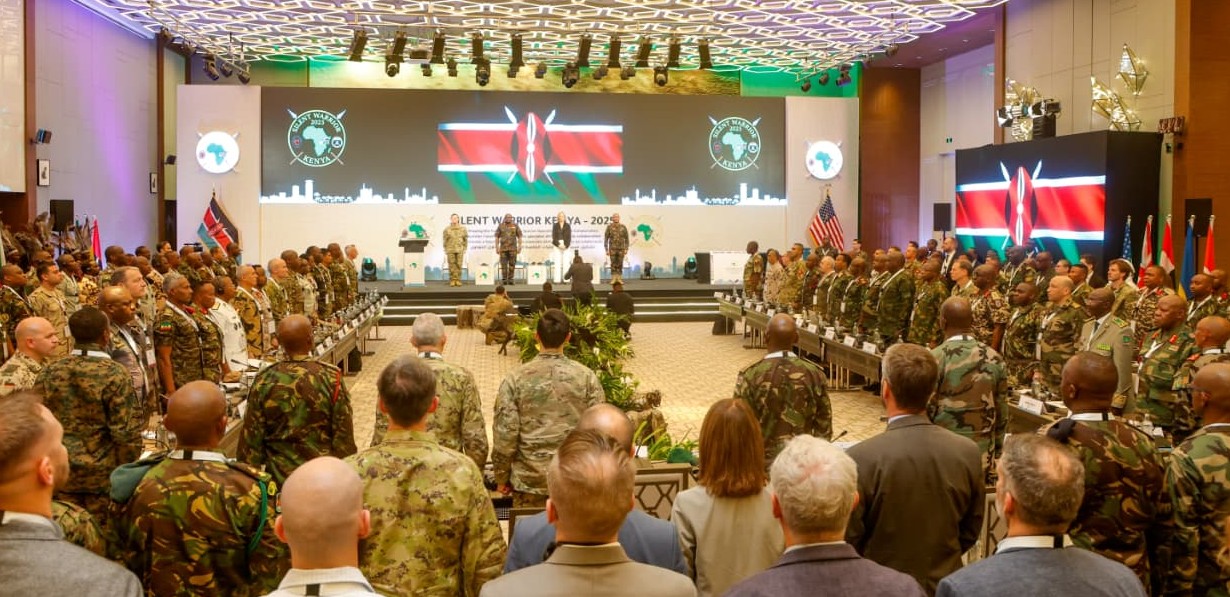Religious leaders join health experts in fight against cervical cancer, maternal deaths

The leaders urged communities to embrace preventive healthcare services, especially HPV vaccination and cervical cancer screening.
Religious leaders from across Africa have joined forces with healthcare experts in Nairobi to amplify efforts against maternal mortality and cervical cancer, two of the biggest health threats facing women in Kenya and the continent at large.
Speaking at the opening of the Faith in Action Health Conference in Roussel House, Donum Dei, Nairobi, a pan-African interfaith initiative, the leaders urged communities to embrace preventive healthcare services, especially HPV vaccination and cervical cancer screening.
More To Read
- Faith under fire: How social media fuels rising attacks on religions, followers in Ethiopia
- Kenya reports progress in HPV vaccination, still short of WHO target
- Ruto orders all hospitals to report every maternal and child death
- Born too soon: The hidden burden of preterm birth, fight for survival
- 10 runners race up Mt Kenya in 10 hours to honour women lost to cervical cancer
- Cervical cancer screening in Kenya alarmingly low with only 1 in 4 women tested
Despite being free and available to girls aged 10 to 14 in Kenya, the uptake of the HPV vaccine reportedly remains below 30 per cent, largely due to misinformation, stigma and inaccessibility.
“HPV vaccination is cervical cancer prevention, and yet our girls are passing the age of 14, going to 15 when they’re no longer eligible for that vaccine,” KILELE Health Association Executive Director Benda Kithaka said.
Kenya loses more than 3,500 women to cervical cancer annually, making it the leading cause of cancer-related deaths among women. The maternal mortality rate is equally alarming, with 342 deaths reported per 100,000 live births.
Kithaka emphasised the need for widespread education and community sensitisation, quoting scripture to support her call.
“It is true what we hear from the Good Book, our people are hurting for lack of knowledge,” she said.
“We all know that health facilities are giving screening for cervical cancer elimination, and yet women are not taking these services. Therefore, this conference is set to give knowledge and information on maternal health so that we can all work together from a point of knowledge and take this message to the community.”
Benda reiterated that both men and women must be empowered with health information, linking better health outcomes to stronger families and economic progress.
“We work to equip women and men with knowledge of what can be done to prevent these illnesses so that we can get communities that are contributing to the economy, and we can get our women to be able to raise our children in good health,” she said.
She reminded the audience that cervical cancer is preventable through HPV vaccination and early detection, and survivorship is possible.
“There is life beyond cancer, and survivorship is real. Therefore, let’s urge our communities to know better and to be able to prevent this illness as early as possible,” Benda said.
“As we advance the WHO 90-70-90 strategy to eliminate Cervical Cancer through Prevention, Screening, and Treatment, we must also recognise the essential role of palliative care. Providing support for cancer patients at every stage of the cancer treatment journey is not optional; it's fundamental. It is crucial in managing pain, alleviating symptoms, and improving the quality of life."
Executive Director of the Africa Health and Economic Transformation Initiative (AHETI) Fr. Charles Chilufya, S.J., linked the campaign to the Christian Jubilee Year, a season of healing and liberation.
“A Jubilee Year is a year in which the church declares a year for freedom of captives… It also includes the freedom of our sisters and mothers who are enslaved by the diseases we are talking about. They must be free,” Fr. Charles said.
He challenged religious institutions to use their resources and influence to ensure no woman dies of preventable illnesses.
“We have so much that we can deploy and put out there to ensure that all girls are vaccinated, women are treated, and those that need protection are protected,” he said.
Fr. Charles encouraged partnerships with governments and NGOs to extend healthcare to marginalised populations.
“We will allow collaborating with government, NGOs, and other stakeholders to ensure that we put what we have as resources—the voice, the reach, the hospitals—out there for humanity. No man, no woman should die when there’s no need for them to die,” he said.
Archbishop of Nairobi, Most Rev. Philip Anyolo, who was the conference’s chief guest, described healthcare as “a mission of love” that must uphold human dignity.
“Our Holy Father, in his lifetime, may his soul rest in peace, insisted and taught us a very special truth that will forever endure in our lives. He taught that the church cannot remain indifferent to suffering,” he said.
Referencing the biblical story of the woman healed by touching Jesus’ cloak, Archbishop Anyolo said healing should go beyond the physical to address emotional and spiritual wounds, removing stigma and shame.
“When she touched Jesus’ hem, she was not only healed from haemorrhage but also from hidden human elements. This brings out the meaning of dignity and love. Because without working and helping the sick people with love, we are just treating the numbers,” he said.
He called on the faith community to be a sanctuary for holistic healing.
“The faith community is a hospital for the sick, to heal the sick in body, mind, thought, and even soul. Let us go out there, not to heal only the body, but to heal also the soul, to heal integrally and to heal with the dignity of that human person who needs it,” he said.
Top Stories Today











































